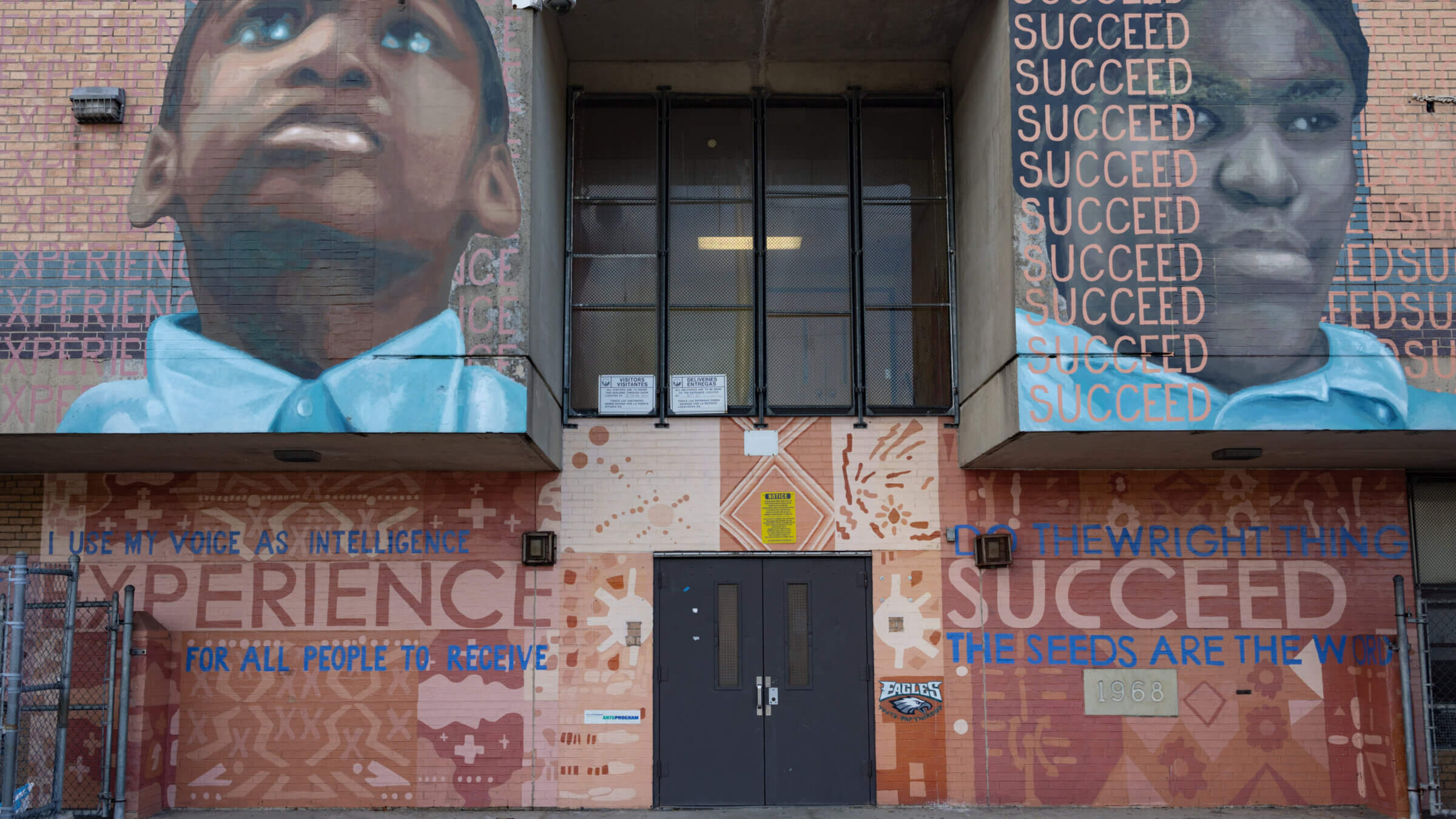ADL plans to ramp up legal pressure on K-12 schools over antisemitism
The organization’s head of advocacy expressed concern about teachers ‘discussing anti-Zionism’ in class

A public elementary school in Philadelphia. The Anti-Defamation League filed a legal complaint against the local school district that was recently validated by the Department of Education, which found Jewish students were subjected to widespread bullying. Photo by Getty Images
The Anti-Defamation League is seeking to ramp up pressure on K-12 schools over antisemitism and criticism of Israel in the classroom that the group says mirrors problems on college campuses.
Administrators in elementary and secondary schools have scrambled to respond to complaints that Jewish students are being bullied with taunts related to the Israel-Hamas war and that teachers are injecting political criticism of Israel into lessons. The president of a leading private school association was forced to apologize after multiple speakers assailed Israel during their presentations at a recent conference.
“A lot of promises have been made that things will be better, things will be different, and we want to hold those institutions accountable,” Shira Goodman, the ADL’s vice president of advocacy, said at a webinar for parents last week.
In an online survey of 223 parents conducted in October and released by the ADL on Monday, a third said their child had encountered “antisemitic bias” at school. Among the 35 Jewish parents queried, it was more than two thirds.
Goodman said the organization was seeking to address everything from students who were afraid to let classmates know they were Jewish to “teachers talking about anti-Zionism,” and that some teachers “are learning these things from unions.” Several major teachers’ unions have in recent months passed resolutions calling for an immediate ceasefire in Gaza, an end to U.S. military aid for Israel or divestment of union funds from companies connected to Israel or the war.
Pro-Palestinian activists have complained that organizations like the ADL are seeking to stop teachers from teaching anything critical about Israel.
The ADL this year changed its methodology for tracking antisemitic incidents to include virtually all protests that include anti-Zionist rhetoric. The organization has also written letters to 16,000 school districts asking them to adopt the International Holocaust Remembrance Alliance working definition of antisemitism, which includes anti-Zionism; to ensure that antisemitism is included in their training on discrimination and bias; and to push for robust Holocaust education.
Goodman said during the webinar that the ADL was expanding a free legal assistance program that was piloted in California to make it available to families in New York and Massachusetts.
Concerns over Israel content, swastikas
The ADL has brought several legal complaints against K-12 schools over the past year, including one in Philadelphia that was validated by the Department of Education last week. Federal officials found that the Philadelphia School District had failed to protect Jewish students despite “repeated, extensive” notice of problems including students performing Nazi salutes, drawing swastikas on school property and using antisemitic slurs.
To resolve the case, Philadelphia officials agreed to provide annual training for administrators, faculty, staff and students, improve documentation of complaints, and adopt a statement against harassment.
In Oakland, California, Jewish families pulled nearly three dozen students out of the city’s public schools due to frustration with what one parent told the local Jewish news outlet “half-truths, one sided-stuff” about Israel.
Another parent said a classmate threw her daughter’s Star of David necklace into the garbage while they were changing in the locker room.
The ADL has over the years recommended Holocaust education as a remedy, pointing to past research that found people who received such lessons believed fewer antisemitic tropes.
But Matt Williams, the ADL’s director of research, told parents in last week’s webinar that some of the biggest causes of antisemitism in schools were the rise of misinformation and conspiracy theories in the United States, along with a growth of “zero sum thinking” and “anti-elite populism.”
“These factors are hitting younger Americans harder,” Williams said. “I would almost rather people graduate from high school nowadays knowing how to tell the difference between fact and fiction from the misinformation stew, than about the Holocaust.”
















